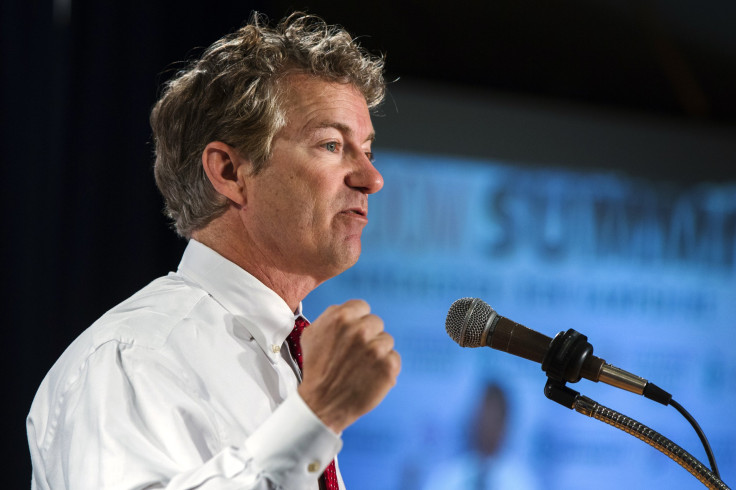Rand Paul On Iraq: "I'm Not Sure Where The Clear Cut American Interest Is," During ‘Meet The Press’

Sen. Rand Paul, R-Ky., has enough criticism to go around when it comes to the Iraq crisis and America’s Middle East policy in the last 13 years.
In interview with David Gregory on NBC's "Meet The Press," Paul questioned the Obama Administration’s foreign policy and the decisions of lawmakers a decade ago. He mulls on the deeply complicated nature of the situation in Iraq and Syria and advocates for a more hands off approach to American foreign policy in the Middle East.
“I see mostly confusion and chaos and I think some of the chaos is creating from getting involved in the Syrian Civil War ... They [ISIS] are emboldened because we are supporting them,” Paul said. “I personally believe that this group would not be in Iraq and not be as powerful had we not been supplying their allies in the [Syrian Civil War] …”
As far as intervening militarily to stamp out extremists, Paul says he looks at it from a “personal basis.”
“I ask 'do I want to send my sons or your son to fight to regain Mosul?' And I think, 'Well yeah, these are nasty terrorists, we should want to kill them.' But I think, ‘Who should want to stop them more?’ Maybe the people who live there. Should not the Shiites, the Maliki government, should they not stand up? And if they’re ripping their uniforms off and fleeing, they don’t think Mosul is worth saving. How am I going to convince my son or your son to die for Mosul?”
Paul offered some criticism for his own party as well. In response to Dick Cheney’s lambasting of President Obama in a Wall Street Journal opinion piece last week, Paul questioned Cheney and his fellow pro-Iraq War lawmakers during the Bush Administration.
“I think the same questions could be asked of those who supported the Iraq War,” Paul said. “You know, were they right in their predictions? Were there weapons of mass destruction there? Was the war won in 2005, when many of those people said it was won? They didn’t really understand the civil war that would break out.”
Paul went on to say he doesn’t blame President Obama for the current crisis and questioned if there really is a solution in Iraq that involves the United States. He later contemplated how liable the American people are to carry on with American foreign policy decisions from 13 years ago.
“Can one generation bind another generation? Can the people you elected in 2002 who voted to go to war … does that bind us forever? Are we at war forever, with no geographic limit and no temporal or time limit on this?”
He pivoted several times to Iran, arguing U.S. Middle East policy over the last decade has “emboldened” Iran. He argued following the Iraq War there is “Iranian hegemony throughout the region.”
Watch Paul’s full interview on Meet The Press:
© Copyright IBTimes 2024. All rights reserved.












